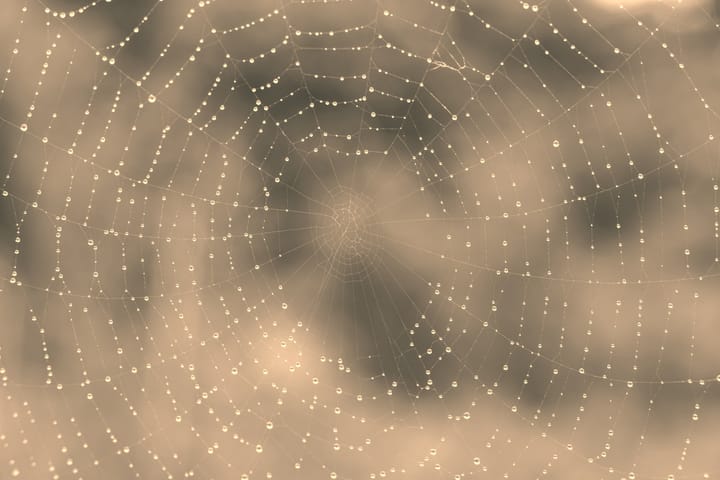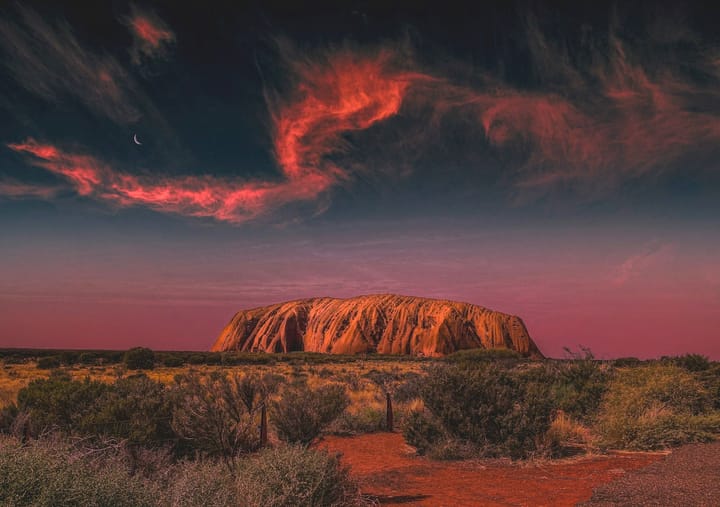The Blind Spot: Western Media Coverage of the Pahalgam Attack
Western media's response to the Pahalgam attack reveals a troubling blind spot in terrorism coverage, when it comes to India.

When Terror Becomes a "Shooting Incident"
On April 22, 2025, a horrific terrorist attack in Pahalgam, Kashmir claimed the lives of 26 innocent civilians. The militants, later identified as members of The Resistance Front (TRF), an offshoot of Pakistan-based Lashkar-e-Taiba, specifically targeted Hindu tourists in what has become the deadliest attack on civilians in India since the 2008 Mumbai attacks.
What followed in Western media coverage revealed a disturbing pattern that many like me have long observed: a selective approach to reporting terrorism that seems to change based on who the victims are, and where the attack takes place.
The Linguistic Sleight of Hand: From "Terrorists" to "Gunmen"
Western mainstream media outlets consistently employed language that minimised the severity of what happened in Pahalgam. Consider these patterns in the coverage:
1. Dilution of Perpetrator Identity
When reporting on the Pahalgam attack, major Western outlets avoided the term "terrorists" in favour of more neutral terms:
- "Gunmen" (BBC, Washington Post, Al Jazeera, ABC Australia)
- "Militants" (Reuters, NYT, AP, CNN)
- "Rebels" (Al Jazeera)
- "Assailants" (SBS Australia)
The BBC's language was particularly notable, referring to the attack as a "militant attack" rather than terrorism, which prompted the Indian government to lodge a formal protest with the network, expressing "strong sentiments" about their reporting.
This language choice creates significant distance between the perpetrators and their ideology. It sanitises the brutality of religious terrorism into something that sounds more like a localised skirmish or criminal incident. Would the same terminology be used if the attack had occurred in London, New York, or Sydney?
2. The Act Itself: Renamed and Reframed
Similarly, the attack was rarely called "terrorism" in these publications:
- A "shooting" (CNN, BBC)
- An "attack on tourists" (AP, Reuters)
- A "raid" (Al Jazeera)
One particularly striking description came from The Washington Post, which called it "a rare attack on tourists" - as if the rarity somehow diminished its severity.
3. Obscuring Motive and Method
Perhaps most troubling was how Western media largely sidestepped the clearly religious motivation behind the attack. While eyewitness accounts confirmed that the attackers specifically targeted Hindu tourists after asking victims to identify their religion, many Western outlets minimised or omitted this crucial fact.
CNN mentioned that India's defence minister called the attack "religiously targeted" but buried this information deep in their article. Most other publications avoided explicit discussion of the religious component entirely, despite survivor testimonies clearly stating that terrorists asked victims if they were Hindu before executing them.
The Pakistan Connection: Downplayed and Questioned
The evidence linking the attack to Pakistan-based terrorist groups like Lashkar-e-Taiba was substantial:
- TRF, which claimed responsibility, is widely recognised as an offshoot of Pakistan-based LeT
- Indian authorities traced digital footprints to safe houses in Muzaffarabad and Karachi
- Intelligence intercepts suggested support from Pakistani operatives
- The attack came just days after Pakistan's Army Chief Asim Munir gave a speech describing Kashmir as "our jugular vein" and making remarks disparaging Hindus
Yet Western media outlets consistently:
- Presented Pakistan's denial of involvement with equal or greater weight than India's evidence
- Used qualifiers like "India claims" or "India alleges" when discussing Pakistan's role
- Rarely mentioned the timing connection to Munir's inflammatory speech
- Framed the situation primarily as a "territorial dispute" rather than terrorism
Al Jazeera even published statements from Pakistan's defence minister suggesting the attack might be a "false flag operation" by India - an extraordinary claim that received serious coverage without sufficient critical examination. Similarly, ABC Australia and SBS gave prominence to Pakistan's response without substantive scrutiny of these claims.
Australian media coverage largely followed the pattern of other Western outlets, with ABC describing the perpetrators as "gunmen" and "militants" while emphasising the territorial dispute angle. SBS coverage, while acknowledging the attack, quickly pivoted to the geopolitical tensions rather than examining the religious targeting aspect in depth.
The Narrative Pivot: From Victims to "Rising Tensions"
Perhaps most revealing was how quickly Western media pivoted away from the victims of the Pahalgam attack. Al Jazeera, for instance, published a feature titled "We're Cursed: Kashmiris Under Attack Across India After Pahalgam Killings" just days after the massacre, effectively shifting the victimhood narrative away from the Hindu tourists who were murdered.
The BBC, CNN, ABC Australia, and others quickly moved to framing stories around "rising tensions" between India and Pakistan. The human stories of those killed - some of whom were newlyweds or young couples - received minimal attention compared to geopolitical analysis.
SBS Australia's coverage followed a similar pattern, with their main focus being on diplomatic tensions and what they called the "worst military escalation in decades" rather than the religious targeting aspect of the attack itself. In their podcast titled "The Conflict in Kashmir," SBS presented the event primarily as part of a territorial dispute, with limited exploration of the religious motivation behind the killings.
Notable also was how the ABC Australia and BBC coverage of the subsequent Indian military response described casualties in Pakistan with greater detail and empathy than they had shown to the initial victims of the Pahalgam attack. ABC Australia's headline following India's response mentioned "at least 31 dead in Pakistan," giving more prominence to these deaths than to the original terrorist attack victims.
The Double Standard: Comparing Coverage
To understand the bias more clearly, we need only compare this coverage to how similar attacks are covered when they occur in Western nations. When terrorists attack in London, Paris, or New York:
- The perpetrators are unambiguously called "terrorists"
- Their ideology and motivations are extensively examined
- The victims' stories are told in detail
- There is little hesitation to name the groups responsible
- Supporting nations or ideologies are scrutinised
Yet when it comes to India, these journalistic standards seem to change.
But why?
The Root of the Bias: Historical, Political, and Cultural Factors
Several factors contribute to this biased coverage:
1. Colonial Legacies and Western Geopolitical Interests
The West's historical alliance with Pakistan during the Cold War established editorial patterns that have remained unchanged. Pakistan was seen as a strategic partner, while India's non-aligned stance created distance from Western powers.
2. Limited Understanding of Hindu Persecution
Western media often lacks the cultural framework to understand anti-Hindu violence, since Hinduism is frequently portrayed as the "majority" religion in India without nuanced understanding of its vulnerable position throughout history.
3. Reliance on Regional Stringers with Biased Perspectives
Many Western outlets rely on local stringers in Pakistan or certain parts of India who may bring their own biases to reporting, especially regarding religious conflicts.
4. The Soft Bigotry of Lower Expectations
There exists an implicit assumption that terrorism is somehow more "expected" or "normal" in regions like South Asia, leading to less outrage and more detached reporting.
The Human Cost: Stories Untold
Lost in this biased reporting are the human stories of the victims. The Pahalgam attack specifically targeted Hindu men, often in front of their wives. Many were newlyweds on honeymoon. One victim, naval officer Vinay Narwal, had been married just six days before he was murdered.
Shubham Dwivedi, another victim, was shot point-blank after answering "We are Hindus" when asked his religion. His new bride witnessed his execution. These personal tragedies received minimal coverage in Western press, which instead focused on geopolitical analysis and "both sides" narratives.
The Path Forward: Actionable steps.
For readers (Indian or not) who value truth in reporting, several actions can help address this bias:
1. Media Literacy: Recognise these patterns in coverage and seek multiple sources
- Learning to identify language patterns that downplay religious terrorism (using terms like "gunmen" instead of "terrorists")
- Comparing how similar attacks are covered in different parts of the world
- Deliberately seeking diverse sources, including Indian publications that may provide context missing in Western coverage
- Cross-checking facts and victim testimonies against reported narratives
2. Direct Engagement: Write to editors and journalists
- Writing thoughtful letters to editors expressing concerns about biased coverage
- Providing factual corrections when reporting contains inaccuracies
- Engaging with journalists on social media or via email with respectful but firm feedback
- Submitting opinion pieces or counter-narratives to publications
- Requesting corrections or clarifications when reporting is misleading
3. Support Alternative Voices: Promote sources that provide more accurate reporting
- Sharing articles from outlets that report accurately on religious targeting
- Supporting independent journalists who cover these issues thoroughly
- Subscribing to publications that provide nuanced analysis of South Asian issues
- Amplifying voices from within affected communities
- Creating platforms for discussion where balanced perspectives can be shared
4. Document and Compare: Create databases comparing coverage
- Tracking language differences in how terrorism is reported across different regions
- Creating side-by-side comparisons of headlines and article content
- Documenting patterns of omission (what facts are consistently left out)
- Building databases that can be shared with researchers, journalists, and media watchdogs
- Using this evidence to advocate for more consistent journalistic standards
5. Amplify Victim Stories: Share the human stories mainstream outlets ignore
- Sharing the personal stories and backgrounds of victims
- Highlighting survivor testimonies, especially regarding religious targeting
- Creating memorials or tribute content that honours victims as individuals
- Ensuring that the religious motivation behind attacks isn't erased
- Supporting victim families' efforts to have their loved ones' stories told accurately
These strategies represent a comprehensive approach to addressing media bias—combining media literacy, direct advocacy, support for better journalism, systematic documentation, and humanising victims. Together, they offer a framework for how concerned readers can work toward more balanced and truthful reporting.
Conclusion: Why This Matters
The Pahalgam attack was not just another incident in a "troubled region." It was a targeted terrorist attack against civilians based on their religious identity. When media fails to report this accurately, it not only dishonours the victims but also enables the very extremism that fuels such violence.
Western media must be held to consistent standards regardless of where an attack occurs or who the victims are. Until that happens, their coverage will continue to reveal more about their biases than about the events they claim to report.
The 26 victims of Pahalgam deserve to be remembered not as statistics. Their stories matter, and how we tell them matters even more.
References
Al Jazeera. (2025, April 24). Kashmir updates: Pakistan claims Pahalgam attack 'false flag operation'. Al Jazeera. https://www.aljazeera.com/news/liveblog/2025/4/24/kashmir-attack-live-india-summons-pakistani-envoy-hunts-pahalgam-gunmen
Al Jazeera. (2025, April 25). 'We're cursed': Kashmiris under attack across India after Pahalgam killings. Al Jazeera. https://www.aljazeera.com/news/2025/4/25/were-cursed-kashmiris-under-attack-across-india-after-pahalgam-killings
Al Jazeera. (2025, April 28). 'Burst balloon': How Pahalgam attack shattered Modi's Kashmir narrative. Al Jazeera. https://www.aljazeera.com/news/2025/4/28/burst-balloon-how-pahalgam-attack-shattered-modis-kashmir-narrative
Al Jazeera. (2025, May 2). Pahalgam attack: A simple guide to the Kashmir conflict. Al Jazeera. https://www.aljazeera.com/news/2025/5/2/pahalgam-attack-a-simple-guide-to-the-kashmir-conflict
Australian Broadcasting Corporation (ABC). (2025, May 8). At least 31 dead in Pakistan in overnight India attacks, military says. ABC News. https://abcnews.go.com/International/26-dead-pakistan-overnight-india-attacks-military/story?id=121548110
BBC. (2025, April 25). Pakistan suspends visas for Indians after deadly Kashmir attack. BBC News.
Business Today. (2025, April 28). Pahalgam attack: Govt writes to BBC, voices strong protest against coverage. Business Today. https://www.businesstoday.in/india/story/pahalgam-attack-govt-writes-to-bbc-voices-strong-protest-against-coverage-473811-2025-04-28
BusinessToday. (2025, May 15). 'Western media pro Pakistan, cannot be trusted': British expert blasts anti India narrative on Op Sindoor. BusinessToday. https://www.businesstoday.in/india/story/western-media-pro-pakistan-cannot-be-trusted-british-expert-blasts-anti-india-narrative-on-op-sindoor-476380-2025-05-15
CNN. (2025, April 24). What happened in Pahalgam and why is the attack escalating India-Pakistan tensions? CNN. https://www.cnn.com/2025/04/24/india/pahalgam-india-pakistan-attack-explainer-intl-hnk/index.html
CNN. (2025, May 7). India launches attacks on Pakistan after Kashmir massacre. CNN. https://www.cnn.com/world/live-news/india-pakistan-attack-kashmir-tourists-intl-hnk
Council on Foreign Relations. (2025, April). The Latest Attack in Kashmir Escalates India-Pakistan Tensions. CFR. https://www.cfr.org/expert-brief/latest-attack-kashmir-escalates-india-pakistan-tensions
France 24. (2025, April 30). 'Are you a Hindu?': Kashmir attack survivors say gunmen asked religion before opening fire. France 24. https://www.france24.com/en/asia-pacific/20250430-are-you-a-hindu-kashmir-attack-survivors-say-gunmen-asked-religion-before-opening-fire-pakistan-india
Human Rights Watch. (2025, April 30). Deadly Attack on Tourists in Jammu and Kashmir. Human Rights Watch. https://www.hrw.org/news/2025/04/30/deadly-attack-tourists-jammu-and-kashmir
Oneindia. (2025, April 27). Pahalgam Attack: Examining Western Media Bias in Terrorism Coverage. Oneindia. https://www.oneindia.com/videos/pahalgam-attack-western-media-bias-exposed-011-4240086.html
Opindia. (2025, April). Pahalgam terror attack: Terrorists attacked tourists after identifying them as non-Muslims. Opindia. https://www.opindia.com/2025/04/pants-pulled-down-id-cards-checked-hindu-tourists-targeted-in-pahalgam-pakistan-coas-asim-munirs-anti-hindu-rant/
Organiser. (2025, April 22). Pahalgam Terror Attack: Islamists shot Hindu tourists. Organiser. https://organiser.org/2025/04/22/288595/bharat/jk-terror-attack-terrorists-in-pahalgam-asked-tourists-their-religion-and-shot-when-told-they-are-hindu/
Reuters. (2025, April 23). What is The Resistance Front, the militant group linked to Pahalgam attack? Reuters. https://www.reuters.com/world/india/kashmir-resistance-group-that-claimed-attack-tourists-indian-kashmir-2025-04-23/
SBS Australia. (2025, April 28). India report: Prime Minister calls the Pahalgam attack a desperate bid to derail Kashmir's return to peace. SBS Hindi. https://www.sbs.com.au/language/hindi/en/podcast-episode/india-report-prime-minister-calls-the-pahalgam-attack-a-desperate-bid-to-derail-kashmirs-return-to-peace/38tg4idcz
SBS Australia. (2025, May). INTERVIEW: The conflict in Kashmir. SBS News. https://www.sbs.com.au/news/podcast-episode/interview-the-conflict-in-kashmir/zotc8odc3
SBS Australia. (2025, May). 'India-Pakistan ties all-time low' says expert, as Indian Australians hold vigils across the country. SBS Hindi. https://www.sbs.com.au/language/hindi/en/podcast-episode/india-pakistan-ties-all-time-low-says-expert-as-indian-australians-hold-vigils-across-the-country/dc44x51la
Swarajyamag. (2025, April). How Global Media Whitewashed The Pahalgam Hindu Massacre. Swarajyamag. https://swarajyamag.com/ideas/how-global-media-whitewashed-the-pahalgam-hindu-massacre
The Associated Press. (2025, April 22). Pahalgam attack: Militants kill at least 26 tourists in Kashmir. AP News. https://apnews.com/article/kashmir-tourist-attack-dc7067a18899d9e7ff7726d4e05982c3
The Associated Press. (2025, May 7). India fires missiles into Pakistani-controlled territory, killing at least 26. AP News. https://apnews.com/live/india-pakistan-attack-pahalgam-kashmir
Vivekananda International Foundation. (2025, April 28). Pahalgam Terror Attack 2025: Unmasking Pakistan's Proxy Hand in Kashmir. Vivekananda International Foundation. https://www.vifindia.org/article/2025/april/28/Pahalgam-Terror-Attack-2025-Unmasking-Pakistan-s-Proxy-Hand-in-Kashmirhindu-tourists-targeted-in-pahalgam-pakistan-coas-asim-munirs-anti-hindu-rant/
Organiser. (2025, April 22). Pahalgam Terror Attack: Islamists shot Hindu tourists. Organiser. https://organiser.org/2025/04/22/288595/bharat/jk-terror-attack-terrorists-in-pahalgam-asked-tourists-their-religion-and-shot-when-told-they-are-hindu/
Reuters. (2025, April 23). What is The Resistance Front, the militant group linked to Pahalgam attack? Reuters. https://www.reuters.com/world/india/kashmir-resistance-group-that-claimed-attack-tourists-indian-kashmir-2025-04-23/
SBS Australia. (2025, April 28). India report: Prime Minister calls the Pahalgam attack a desperate bid to derail Kashmir's return to peace. SBS Hindi. https://www.sbs.com.au/language/hindi/en/podcast-episode/india-report-prime-minister-calls-the-pahalgam-attack-a-desperate-bid-to-derail-kashmirs-return-to-peace/38tg4idcz
SBS Australia. (2025, May). INTERVIEW: The conflict in Kashmir. SBS News. https://www.sbs.com.au/news/podcast-episode/interview-the-conflict-in-kashmir/zotc8odc3
SBS Australia. (2025, May). 'India-Pakistan ties all-time low' says expert, as Indian Australians hold vigils across the country. SBS Hindi. https://www.sbs.com.au/language/hindi/en/podcast-episode/india-pakistan-ties-all-time-low-says-expert-as-indian-australians-hold-vigils-across-the-country/dc44x51la
Swarajyamag. (2025, April). How Global Media Whitewashed The Pahalgam Hindu Massacre. Swarajyamag. https://swarajyamag.com/ideas/how-global-media-whitewashed-the-pahalgam-hindu-massacre
The Associated Press. (2025, April 22). Pahalgam attack: Militants kill at least 26 tourists in Kashmir. AP News. https://apnews.com/article/kashmir-tourist-attack-dc7067a18899d9e7ff7726d4e05982c3
The Associated Press. (2025, May 7). India fires missiles into Pakistani-controlled territory, killing at least 26. AP News. https://apnews.com/live/india-pakistan-attack-pahalgam-kashmir
Vivekananda International Foundation. (2025, April 28). Pahalgam Terror Attack 2025: Unmasking Pakistan's Proxy Hand in Kashmir. Vivekananda International Foundation. https://www.vifindia.org/article/2025/april/28/Pahalgam-Terror-Attack-2025-Unmasking-Pakistan-s-Proxy-Hand-in-Kashmir




Comments ()